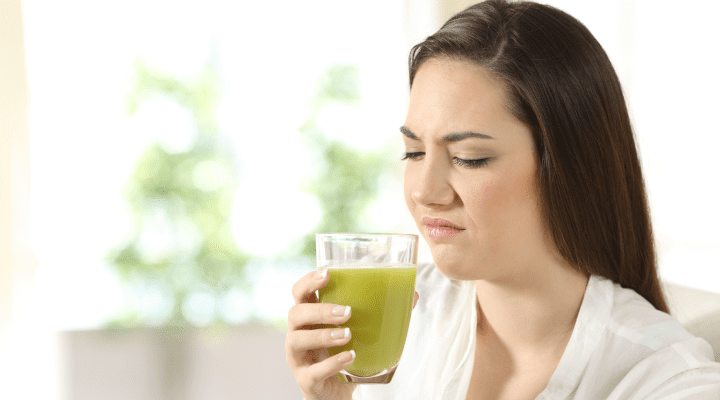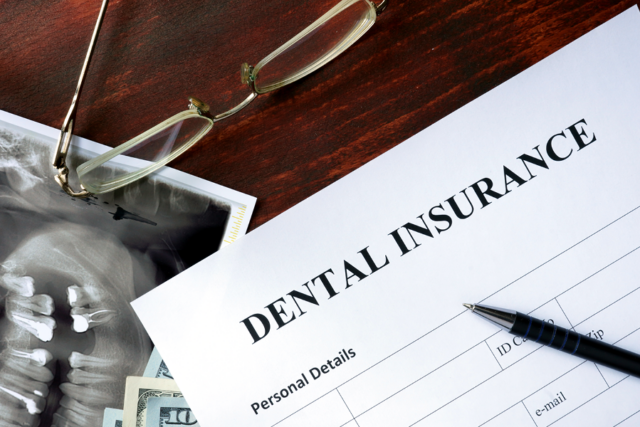Bad Taste After Brushing? Common Explanations

If you have bad breath after brushing your teeth, you aren’t imagining things. The minty freshness of toothpaste plus the scrubbing power of your toothbrush may not be enough to fix some underlying issues.
We have between 2,000 and 8,000 taste buds in our mouths, mostly on our tongues. With so many taste sensors, it’s easy to detect a lingering flavor – especially if you don’t like it. You may experience a bad taste in your mouth, even after brushing, because of these factors:
What causes bad breath after brushing teeth?
- Medication: Anti-depressants, neurological medications, and anti-thyroid prescriptions can leave a metallic taste in your mouth. The severity varies for individuals. Talk to your dentist and your primary care physician about this. They can recommend a mouth rinse to help with taste and dryness.
- Women in their first trimester of pregnancy:A bitter taste is typical due to increased levels of estrogen, and this is only temporary. Talk to your dentist and your primary care physician to see what they recommend for short-term solutions.
- Acid reflux:Stomach acid can cause a similar bitter taste in the mouth if you experience reflux. Discuss your symptoms with your primary care physician and dentist right away if you haven’t already.
- Dental problems: Tooth decay, gum infections, and other problems can cause a bad taste in the mouth due to the presence of bacteria. Visiting the dentist regularly will help ensure you’re addressing any issues
- Halitosis: Bad breath, officially termed “halitosis,” can also be a problem on its own. Bacteria in the mouth caused by food particles stuck between teeth can contribute to the foul taste. It’s important to floss, brush your tongue, and use mouthwash. Brushing your teeth alone is not enough. Chronic bad breath could be a sign that it’s time to see the dentist.
- Nasal problems: The common cold, allergies, and other infections can leave a bad taste from the mucus buildup. Bacterial or viral residues can remain in the mouth, causing an unpleasant taste.
- Bad habits: Smoking or a poor diet can also lead to bad breath. Good oral health is the key to removing this and improving your health.
Bad breath after brushing your teeth may not go away instantly. It is still important to brush twice a day and floss your teeth. Remember to brush your tongue to remove debris and bacteria that can add to the problem.
For more information about your smile health, browse our other blogs.
Related stories
-
Kid-Friendly Recipes that Contain Secret Vegetables
Nutritious food choices help lay the foundation for good oral health. But if you have young kids, … Read More
-
UV Safety Month: Don’t Overlook Oral Health
It’s UV Safety Month – a great time to remember that it’s essential to protect skin from … Read More
-
The Value of Dental Insurance vs. Paying Out of Pocket
According to a Delta Dental survey, 86% of Americans agree that oral health is very or extremely … Read More
Sign Up Now
Most Liked
- 1 Do Expiration Dates on Dental Products Matter? 305 Likes
- 2 Is Activated Charcoal Safe for your Smile? 167 Likes
- 3 Crazy and Cool Fish Teeth Facts 92 Likes
- 4 What Are Tonsil Stones? 81 Likes
- 5 Delta Dental Protects Your Eyes with DeltaVision® Coverage 74 Likes
- 6 The In-between Tooth: Guide to Bicuspids 53 Likes
- 7 Recipe: Quick Pumpkin Pudding 49 Likes
- 8 Bad Taste After Brushing? Common Explanations 44 Likes
- 9 People with Dental Benefits are Healthier 40 Likes
- 10 Own Your Oral Health: Subscribe now for tips to ensure a bright smile 39 Likes




